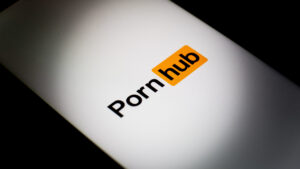Illinois has taken a significant step to safeguard the rights of child influencers with a new law that mandates compensation for minors featured prominently in their family’s social media content. The legislation, signed into law by Governor J.B. Pritzker last year and effective since July 1, requires that children appearing in 30% or more of videos on platforms like YouTube, TikTok, and Instagram be paid at least 15% of the earnings generated by those videos. These earnings must be held in trust until the child reaches adulthood at 18, affording them financial protection and control over their media presence.
The impetus for this law stems from alarming cases involving child influencers, where exploitation and abuse have come to light. Instances like the controversial channels Toy Freaks and DaddyOFive, which were shut down due to abuse concerns, underscored the vulnerabilities of children in the digital spotlight. More recently, Utah vlogger Ruby Franke faced legal consequences after exploiting her children in videos that led to charges of child abuse.
Similar protections for child performers have long existed in traditional media industries. In California, for instance, the Coogan Act, enacted in 1939, mandates that a portion of child actors’ earnings be set aside in trust accounts. Jessica Maddox, a professor at the University of Alabama, noted the disparity in protections between traditional child actors and digital influencers, highlighting the need for legislative action to bridge this gap.
The new Illinois law not only seeks to protect children from exploitation but also recognizes the evolving landscape of digital content creation where young influencers are increasingly turning their platforms into lucrative careers. Channels like The McCartys and Ninja Kidz TV have amassed substantial followings, supported by companies like pocket.watch and Moonbug, which transform family content into thriving businesses.
One notable figure in this realm is Ryan Kaji, known for his toy review channel affiliated with pocket.watch. In 2019 alone, Ryan reportedly earned an estimated $26 million, underscoring the immense financial stakes involved in children’s digital content creation. The Illinois law aims to ensure that child influencers share in the financial success of their channels, providing them with long-term financial security and control over their digital footprint.
Under the new law, once compensated children reach adulthood, they have the right to request the removal of videos they appeared in and can pursue legal action if their rights under the law are not respected. This legal framework not only protects children but also sets a precedent for other states and countries grappling with similar issues in the rapidly expanding digital influencer industry.
As the digital landscape continues to evolve and child influencers play an increasingly prominent role, the Illinois legislation stands as a pioneering effort to uphold the welfare and rights of young creators in the online world. It reflects a broader recognition of the need to adapt legal protections to new forms of media and ensure that all young performers are treated with fairness and respect in their digital careers.
ADVERTISEMENT








